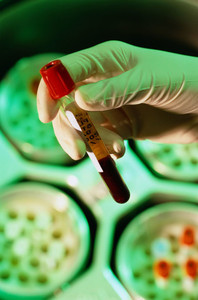As reported in Scrip News on 28 January 2010 by Xavier Buffet Delmas and Laura Morelli of Hogan & Hartson MNP, Paris, intellectual property rights are key elements of the fierce competition between originator and generics companies. Patents are central because it is only when patents elapse that generic products can enter the market. This is when competition in the market begins. Trademarks, trade dress and other marketing tools then come into play. The authors explain some interesting recent legal developments linked to this battle.
Originator/generic competition: who's the 'bad guy'?
Home/Pharma News
|
Posted 26/02/2010
 0
0

For example, they write that in January 2008 the European Commission launched a sector inquiry into the EU pharmaceutical market under European competition rules because information relating to innovative and generic medicines suggested that competition may have been restricted or distorted. The final report was adopted on 8 July 2009, alleging that originator companies had implemented strategies intended to delay or block generic market entry, such as: (1) filing numerous patent applications for the same medicine (‘patent clusters’ or ‘patent thickets’); (2) filing ‘divisional patent’ applications; (3) increasing the number of patent litigation cases; (4) signing settlement agreements, which the Commission claimed restrict the ability of generics companies to market their medicines; (5) questioning the quality of generic medicines; or (6) launching second-generation medicines with the aim of switching a substantial number of patients to the new medicine before the market entry of a generic version of the first-generation medicine.
Mr Delmas and Ms Morelli state the European Commission's approach towards competition in the pharmaceutical sector is clearly in favour of generics companies. But, according to them, the debate should be balanced by looking at the strategies designed and implemented by generics companies to promote their products.
They argue that key considerations include: (1) can generics companies use original medicinal products' trademarks to promote their generic medicines, for example by stating in advertisements that ‘X is a generic of Y’, instead of using the appropriate international non-proprietary names (INN); (2) can they use the original medicinal products' trademarks under any circumstances; and (3) can they use the trademark of an original medicine with the colour that is usually used by the originator company? The Commission's preliminary report remains silent on these issues. They think this is surprising, as originator companies have brought trademark infringement actions against generics firms that used their trademarks in advertisements, without prior authorisation, instead of using the appropriate INN.
The authors state that EU legislation contains principles on these issues, but much depends on how national courts apply them. French courts have decided recently on a landmark case where these issues have been discussed in great detail. Generics companies have used two relevant exceptions to argue that the use of the original medicinal product's trademark does not constitute a trademark infringement: the comparative advertising exception and the ‘necessary reference’ exception to trademark rights, both governed by EU Directives. In their Scrip article they also describe a victory for originator companies over a generic company, but add the battle may not be over yet.
Reference:
Xavier Buffet Delmas and Laura Morelli. Market Insight - Originator/generic competition: who's the 'bad guy'? Scrip News. 2010 January 28.
Source: Scrip News
Guidelines
US guidance to remove biosimilar comparative efficacy studies
New guidance for biologicals in Pakistan and Hong Kong’s independent drug regulatory authority
Policies & Legislation
EU accepts results from FDA GMP inspections for sites outside the US
WHO to remove animal tests and establish 17 reference standards for biologicals
Formycon signs new aflibercept biosimilar pacts and launches ranivisio in Europe

Home/Pharma News Posted 13/11/2025
Bio-Thera and Stada expand biosimilars alliance to include tocilizumab

Home/Pharma News Posted 20/10/2025
The best selling biotechnology drugs of 2008: the next biosimilars targets






